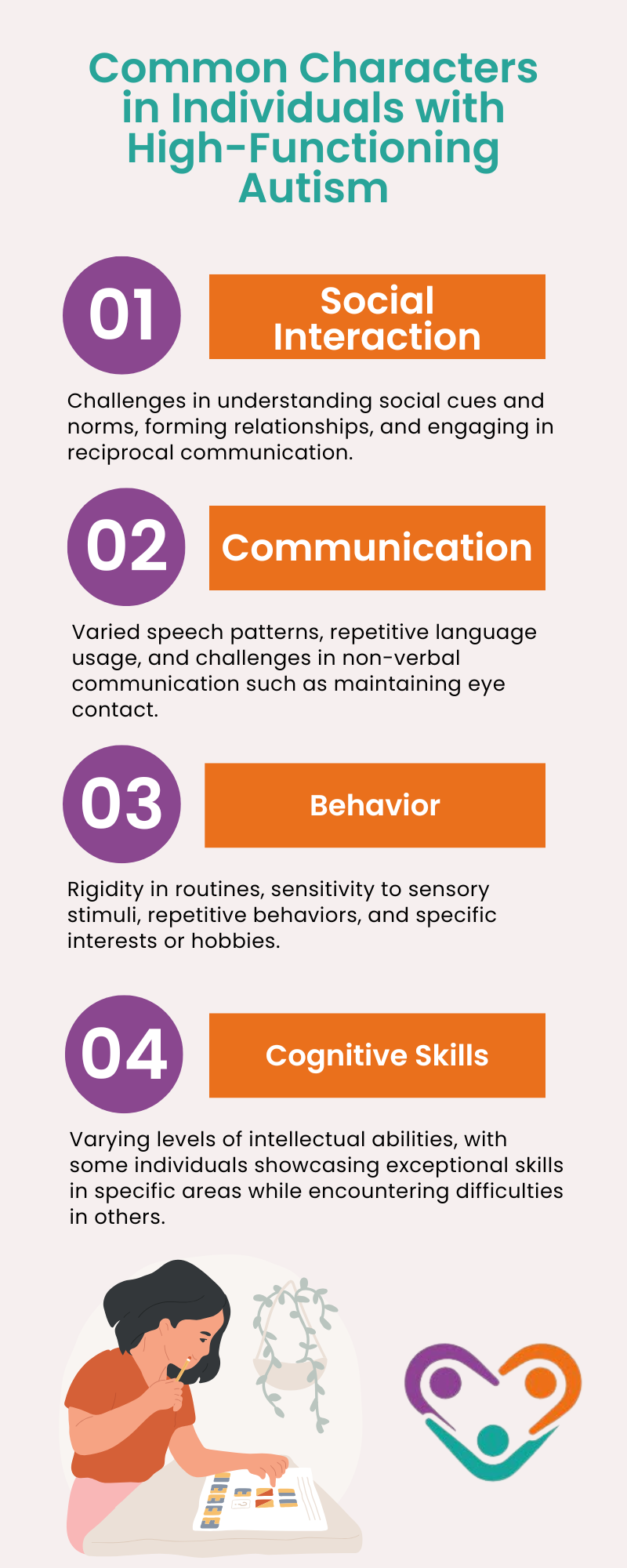Living with high-functioning autism means uniquely experiencing the world, with strengths and challenges that can sometimes be overlooked. People with this form of autism often have average or above-average intelligence, but they might struggle with social interactions, communication, and sensory sensitivities.
While they may seem perfectly capable, there are often hidden difficulties that can affect daily life, making it important to understand what high-functioning autism truly means.
It’s about recognizing individual needs and strengths and finding ways to support those who live with the condition, helping them thrive in a world that may not always be designed with them in mind.
What Does 'High-Functioning' Autism Mean?
High-functioning autism is commonly attributed to individuals who possess the ability to read, write, speak, and manage daily life tasks with minimal to no external aid. While each individual’s experience with autism is unique, those classified under the high-functioning category generally exhibit strengths in certain areas while facing difficulties in others.
That said, here are the traits commonly associated with high-functioning autism:

Understanding these characteristics is imperative in providing appropriate support and interventions tailored to the individual needs of those with high-functioning autism.
Diagnosis and Evaluation
Diagnosing high-functioning autism involves a process that takes into account several factors such as developmental history, behavioral observations, and standardized assessments. These assessments aim to identify the presence of autism-related traits and determine the level of support required to enhance the individual’s quality of life.
The diagnostic process often involves collaboration among healthcare professionals, including psychologists, pediatricians, and autism specialists. A thorough assessment may encompass:
- Behavioral observations in different settings to evaluate social interaction, communication patterns, and behavioral responses.
- Developmental history review to understand milestones achieved and identify any delays or atypical behaviors.
- Standardized assessments to assess cognitive abilities, language skills, and adaptive functioning.
It is essential to approach the diagnosis of high-functioning autism with sensitivity and awareness of the individual’s unique strengths and challenges. By fostering a supportive and understanding environment, individuals with high-functioning autism can receive the necessary guidance and resources to thrive in their personal and social spheres.
Treatment Options for High-Functioning Autism
Individuals with high-functioning autism often benefit from a combination of therapies and interventions to support their unique needs. Treatment options for high-functioning autism typically include occupational therapy, physical therapy, talk therapy, and ABA therapy.

Occupational and Physical Therapy
Occupational therapy focuses on helping individuals develop the skills necessary for everyday tasks and activities. For individuals with high-functioning autism, occupational therapy may address challenges related to sensory processing, social skills, and fine motor coordination. By working with an occupational therapist, individuals can learn strategies to navigate daily routines and improve their overall quality of life.
Physical therapy is another valuable intervention for individuals with high-functioning autism. Physical therapists help individuals improve their physical strength, coordination, and motor skills through tailored exercises and activities.
Physical therapy can also address issues such as balance, posture, and gross motor skills, enhancing independence and mobility.
Talk Therapy and Applied Behavior Analysis
Talk therapy, also known as psychotherapy or counseling, can be beneficial for individuals with high-functioning autism to navigate social interactions, emotions, and relationships.
Through talk therapy, individuals can develop coping mechanisms, enhance communication skills, and explore strategies for managing stress and anxiety. Talk therapy provides a supportive environment for individuals to express themselves and work through challenges related to their autism diagnosis.
Meanwhile, Applied Behavior Analysis (ABA) is a widely recognized and evidence-based treatment approach for autism spectrum disorders, including high-functioning autism. By breaking down complex skills into manageable steps and providing positive reinforcement, ABA helps individuals with autism learn new behaviors and improve their overall functioning.
It’s important to note that approximately 70% of individuals with autism have at least one co-occurring condition, highlighting the importance of a comprehensive approach to treatment.
A psychological evaluation can help determine the most appropriate course of treatment for individuals with high-functioning autism, taking into account their strengths, challenges, and support needs.
While there is no one-size-fits-all approach to treating high-functioning autism, a personalized combination of therapies, interventions, and support services can help individuals with autism lead fulfilling and meaningful lives.
Promoting Understanding and Acceptance
In autism, promoting understanding and acceptance is paramount for creating inclusive environments. This involves avoiding oversimplification when categorizing individuals with autism and fostering settings that embrace neurodiversity.
Avoiding Oversimplification
The use of labels such as “high-functioning” or “low-functioning” when describing individuals with autism can lead to oversimplification of their experiences. These labels do not accurately portray the full spectrum of capabilities and challenges that individuals with autism may possess.
These labels can inaccurately predict an individual’s true abilities, potentially hindering their access to appropriate resources and accommodations.
The designation of “high-functioning” in particular can contribute to a phenomenon known as masking. Masking occurs when individuals with autism camouflage or suppress behaviors that are perceived as neurodivergent to conform to societal expectations.
While masking may help individuals blend in, it often comes at a cost, leading to increased anxiety, depression, and decreased self-esteem.
It’s essential to move away from the dichotomous view of high- and low-functioning labels, as they can create unrealistic expectations and stigmatize individuals who do not neatly fit into these predefined categories. Embracing the complexity and individuality of each person on the autism spectrum promotes a more accurate and compassionate understanding of their experiences.

Fostering Inclusive Environments
To foster inclusive environments for individuals with autism, it is imperative to move beyond the limitations imposed by oversimplified labels. Instead of relying on rigid categories, emphasizing acceptance and understanding of neurodiversity is key to creating supportive communities.
Fostering inclusive environments that celebrate the diversity of experiences within the autism community will help us work towards creating a society that embraces and supports all individuals, regardless of where they fall on the autism spectrum. At Golden Care Therapy, we are proud to offer top-quality autism services in Georgia, focusing on individualized ABA therapy that meets the unique needs of each person.
Our dedicated team is here to provide the guidance and support you need. Contact us today to learn more about how we can assist you or your loved one in achieving meaningful progress.
Sources:



